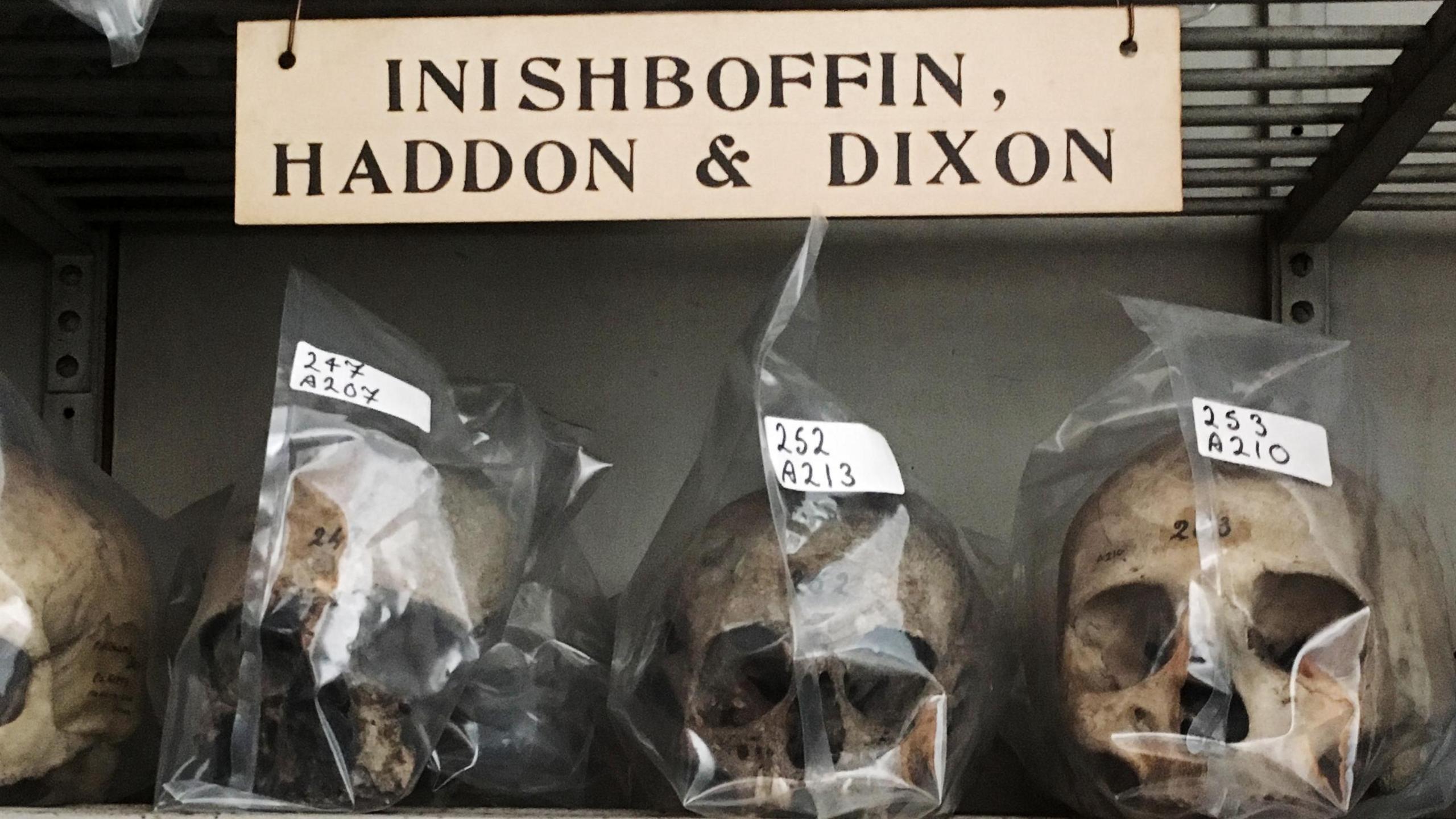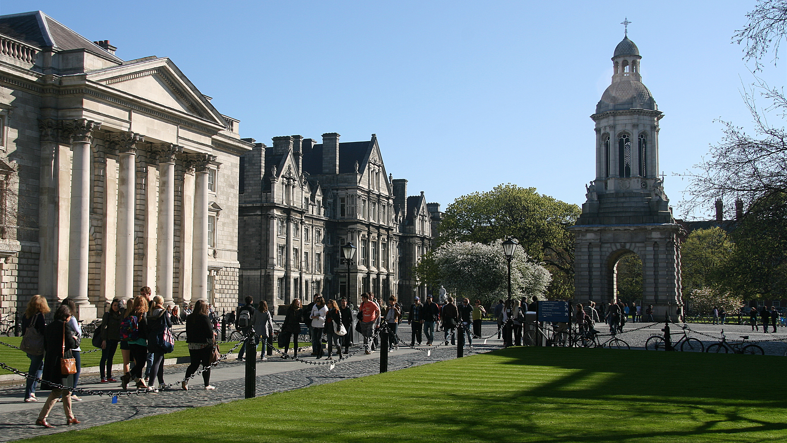University to return skulls to Irish island

Skeletal remains of 13 people were taken from a monastery on the island
- Published
Human remains, including 13 skulls, are to be returned to the Irish island of Inishbofin by Trinity College Dublin.
They were taken from a cemetery on the island by two academics more than a century ago and subsequently kept at Trinity.
The provost of Trinity College Dublin (TCD), Dr Linda Doyle, has apologised for the upset caused by the university's possession of the remains.
Islanders living on Inishbofin had called on TCD to return the remains and described their taking as theft.
The university said it would now consult with islanders on the most appropriate way to return them.
Inishbofin, also known as the Island of the White Cow, is in the Atlantic Ocean off the coast of County Galway with a population of about 170 people.
Fishing survey
In 1890, academics Alfred Cort Haddon and Andrew Francis Dixon - who later became Professor of Anatomy at Trinity College - sailed to Inishbofin under the pretence of carrying out a fishing survey.
But they secretly removed partial skeletal remains of 13 people, including their skulls, from St Colman's monastery on the island without the community's knowledge.
At the time, there was interest in the study of craniometry, the measurement of the cranium, and anthropometry, the scientific measurement of individuals.
Haddon recorded the events on Inishbofin in his diary.
Since then the remains have been stored in TCD's old anatomy museum, but the university's governing board has now said that they should be returned to Inishbofin.
That followed an investigation by Trinity's Legacies Review Working Group.

The university apologised for the upset caused by retaining the skulls
The Inishbofin remains were the first case to be examined by the review group but they are also looking at Trinity's links with slavery and the British Empire.
For example, TCD's library is named after the philosopher George Berkeley, an 18th Century slave owner.
In 2022, National Museums Northern Ireland (NMNI) returned human remains and other sacred objects to Hawaii.
Representatives from the Office of Hawaiian Affairs received two separate human remains, including a skull, and five sacred objects, at a ceremony held at the Ulster Museum.
It and some other museums in the UK have also examined potential links to the slave trade and are considering requests for items to be returned to Australia, Asia and South America.
But the remains to be returned by TCD were actually taken from their fellow Irish citizens on Inishbofin.
More than 150 current residents on the island signed a petition calling for the return and condemning "the criminal nature of how these remains came into the possession of Trinity College in the first place".
The Inishbofin Development Company also wrote to Trinity and said the remains were "removed illegally without permission".
"These people were part of the island community of Inishbofin and deserve to rest in peace in this sacred place they were laid to ground in," their letter said.
In a statement following TCD's decision to return the remains, Dr Linda Doyle said she was "sorry for the upset that was caused by our retaining of these remains and I thank the Inishbofin community for their advocacy and engagement with us on this issue".
"We will now work with the community to ensure that the remains are returned in a respectful manner and in accordance with the community's wishes," she added.
NI museums staff return human remains to Hawaii
- Published6 May 2022
Slave trade artefacts feature in new exhibition
- Published7 April 2022
Trinity College to investigate its slavery links
- Published18 February 2021